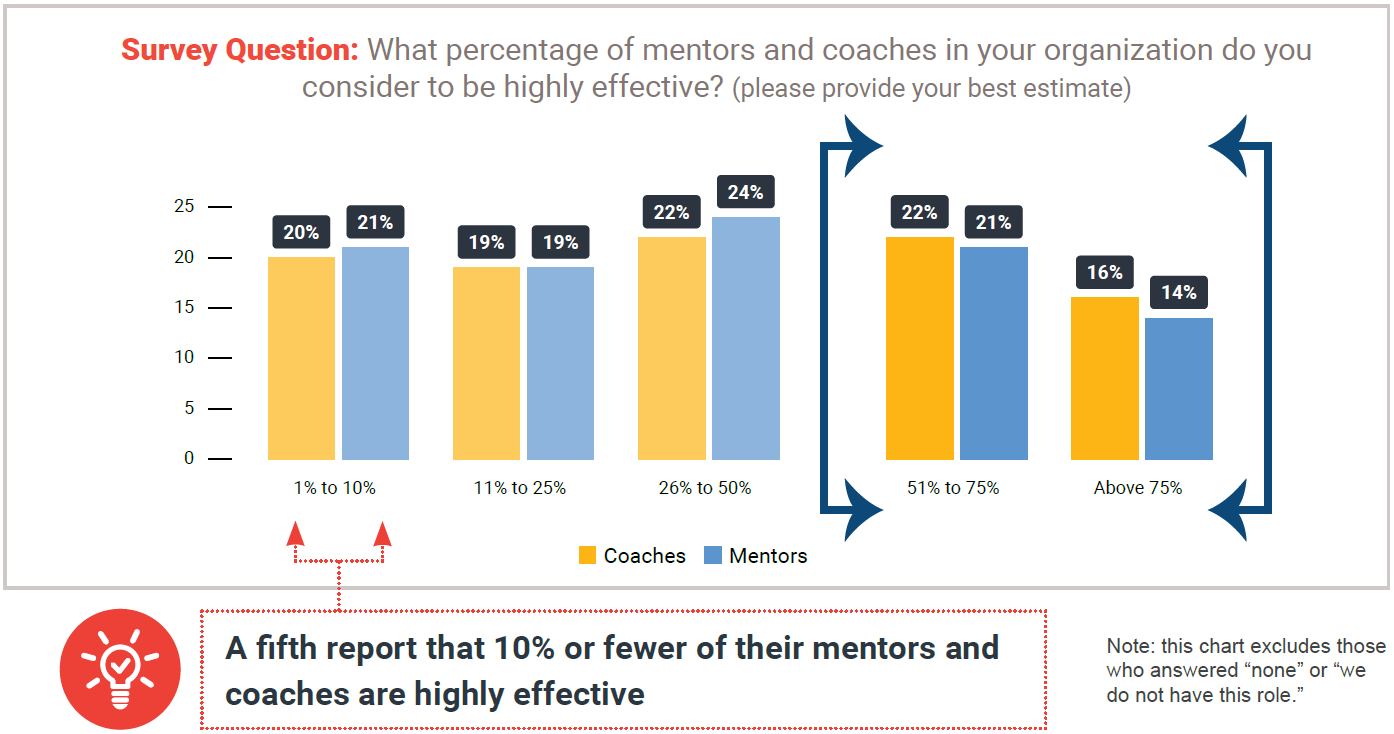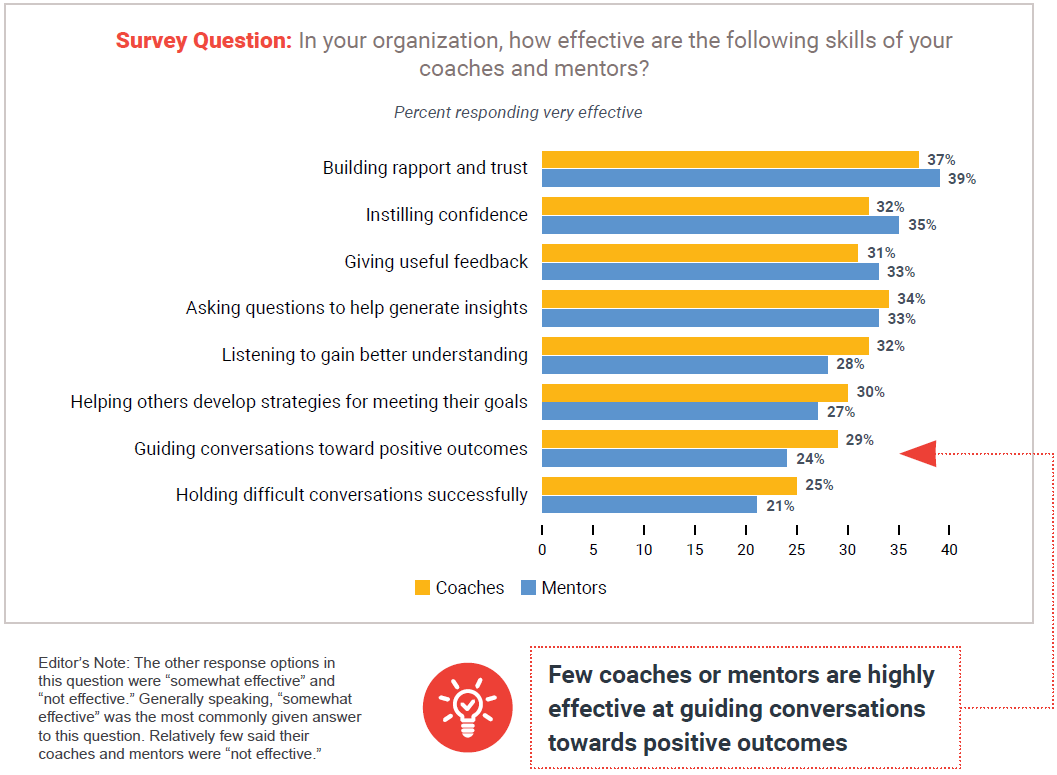Despite the importance organizations place on coaching and mentoring, the majority say that coaches and mentors are not highly effective.

Few organizations consider the majority of their coaches to be highly effective
The most critical ingredient of any coaching and mentoring initiatives is the effectiveness of those doing it. Yet, among organizations that have coaching roles, only 38% say that more than half of their coaches are highly effective, and just 16% say over three-quarters of their coaches are highly effective.
Among those with mentoring roles, only 35% say that more than half of their mentors are highly effective, and just 14% say over three-quarters of their mentors are highly effective. The bottom line is even among those with coaching and mentoring roles in their organizations, the majority believes that half or fewer of their coaches and mentors are highly effective.
Few say their coaches and mentors are very effective in eight key areas
Few respondents consider either their coaches or mentors to be highly effective in eight skill areas. Coaches are relatively better than mentors at listening, holding difficult conversations and developing strategies to meet goals. Mentors, on the other hand, are slightly more effective at instilling confidence and giving useful feedback.
For both coaches and mentors, the scarcest skill of all is the ability to hold difficult conversations. One of the main barriers to effective coaching and mentoring is that managers often avoid difficult conversations. This represents a crucial skills gap that organizations can focus on closing.

